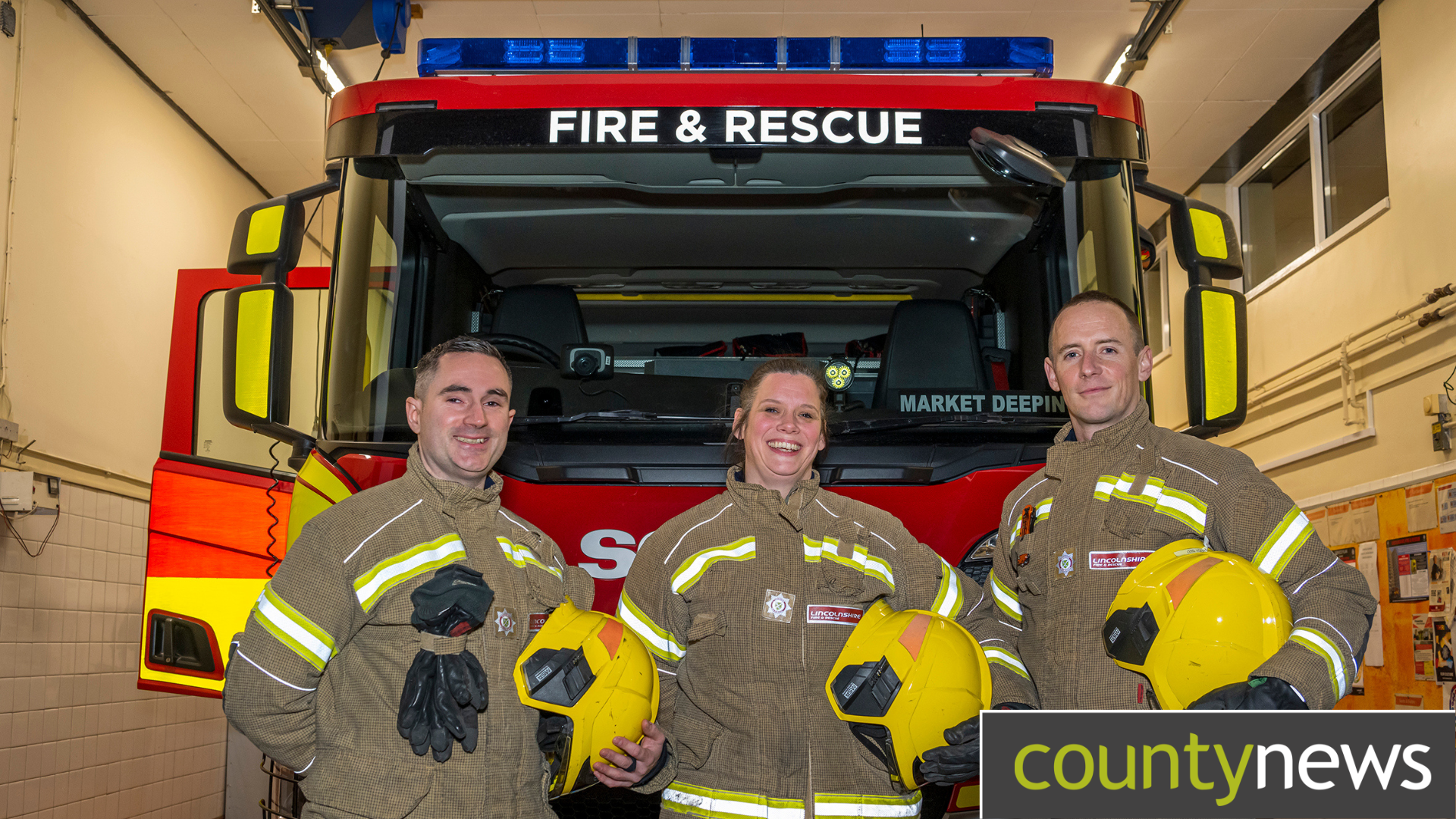
Firefighters are heroes and life-savers in our communities, but behind every uniform is a person with a home life, other responsibilities and often, another job.
Lincolnshire has 29 community fire stations which are staffed entirely by On-Call firefighters, with all 38 fire stations having an On-Call crew available.
Some of these firefighters work in supermarkets, others as accountants, mechanics and teachers. Whatever their background, they help to provide cover so the local fire appliance remains available to respond to emergencies.
On-Call firefighters work as a team, using the latest equipment and life-saving techniques, to attend property fires, road traffic collisions, chemical spills, animal rescues, floods and many other incidents. They are continually trained to a professional standard, learning and maintaining skills including trauma and casualty care, LGV driving, manual handling and Health and Safety training.
Working shifts, our On Call firefighters must be within five minutes of the fire station so if their pager goes off, they can respond quickly. Shifts are available around other commitments such as work and caring for children or relatives.
Cllr Lindsey Cawrey, executive councillor for fire and rescue, said: “We’re always looking for new On-Call firefighters to help us keep good cover for emergencies. The role is exciting, challenging and rewarding. It’s important to us that firefighters reflect the communities they serve, and we encourage people to apply from all walks of life.”
To apply, you must:
- be aged 18 or over
- live or work within five minutes of a fire station
- provide your work or school history for the last three years
- provide two work references
Lincolnshire Fire and Rescue hold ‘Have-a-Go’ days every month to give an insight into the role of an On-Call firefighter and the required fitness and aptitude. To book onto a session and find out more, visit www.lincolnshire.gov.uk/lfr.
On call for you
Sean Reidy, Rachael Horner and James Tamburrini are On Call firefighters at Market Deeping fire station.
Having completed their initial training they are now part of a team of ten at the station, working shifts under watch manager Kallum Errico. The busy crew attended 230 call outs last year.
Sean and James are self-employed, while Rachael works as a chef. Landscape gardener James said: “When you start training it can be very daunting, but also very rewarding. You learn skills that are useful in your ‘other’ life – recognising when something is potentially dangerous and, of course, how to help someone who is injured.”
Rachael, who is considering training to become a wholetime firefighter, added: “Every time you get called out, it fills you with pride. It’s unique in that way and becomes part of your life. In some ways you become a role model in your community- people wave at the fire appliance when we go past! It’s brought so much to my life – I’d recommend it to anyone.”
Sean said: “This job can be mentally and physically testing and you have to have room for it in your life. But it’s a misconception that this is a voluntary role – we get paid to train and we are paid every time we go out to an incident. There is also a shift payment.”
